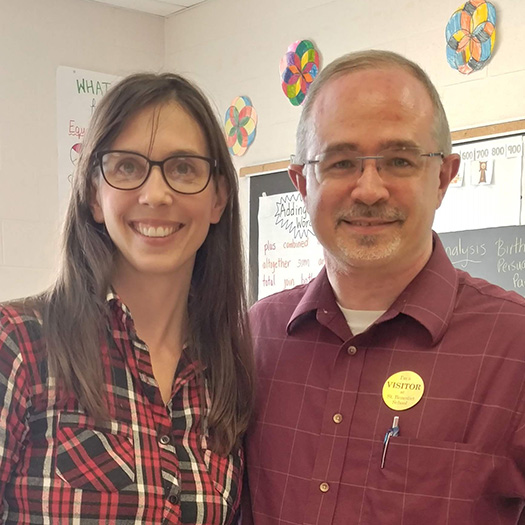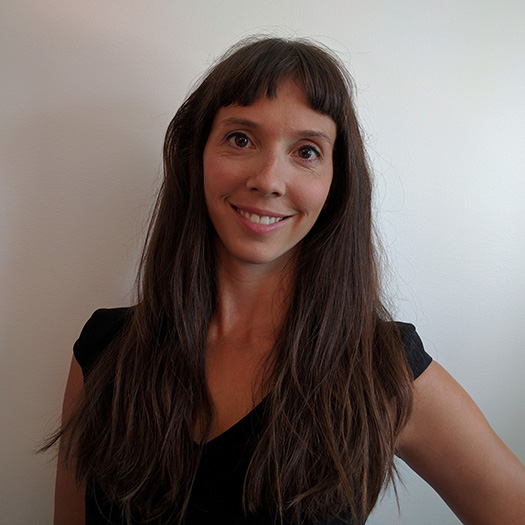Rebecca White has led a successful career through the core chemical engineering space, getting involved in the production of food and medicine in industry. Even though she was exciting to see a variety of technologies and strategies in industry, she was missing a sense of meaning and purpose in her work. Fortunately, she found that meaning in a venture known as Engineers of Tomorrow and has been pushing their initiatives ever since.
In this Q&A, we hear about Rebecca’s experiences in industry, the development of Engineers of Tomorrow as a non-profit organization, and why people chose engineering as their career despite it being one of the toughest subjects of study in the world.
What does Engineers of Tomorrow do?
Engineers of Tomorrow is a grassroots initiative that pairs real engineers and engineering students with classrooms. They get the opportunity to connect with students and help them see how their studies can be applied to the world of engineering. We train our volunteers so they can better connect with the students to keep the relationships inclusive.
Working at Engineers of Tomorrow is a very entrepreneurial experience. Even though we have hundreds of volunteers pushing our initiative, our core team is very small, and our operations are seasonal. In the spring we are doing more administrative tasks and reaching out to volunteers for the fall season. In the summer we are training the volunteers to prepare them for when they meet the students. Then in September everything kicks off. After that, operations slow down and we do some strategic planning to improve our procedures and brainstorm new projects until we repeat the process the following year. Engineers of Tomorrow is a non-profit organization, so we are always reaching out to like-minded sponsors and seeking out grants to continue supporting our work.
What was your career path? Internships/first job?
My first job was at a Pillsbury plant in Trenton, Ontario, which was converted to General Mills when I left. I was a floor supervisor, where I was overseeing operations at the plant making sure everything was running smoothly. After a year I moved to Toronto where I got a job in the pharmaceutical industry at a company called Apotex. Once again, I started out as a floor supervisor, but over the decade I was working there I took the lead on various projects. When I left, I was the manager of production coordination support, where I made sure that all the other tasks apart from making medicines were completed, such as training and investigations.
After working at these plants for over a decade I felt that I had learned as much as I was ever going to learn in the core chemical engineering space, and I started to feel disconnected from my meaning and purpose in the work I was doing. I set myself down on a path where I was trying to find something that gets me excited, and I was researching other job opportunities trying to find something that would suit me better. I tried taking on another position in the food industry at ConAgra Foods where I would get to take on a design project as opposed to a managerial role, but that did not fit for me in the end.
Afterwards I reached out to an old friend from Queen’s, and she was a part of this neat venture called Engineers of Tomorrow. When I heard about what they were doing for the engineering discipline, I really wanted to be a part of it, and I joined as the operations manager and later became the CEO.
What is your greatest success so far in the industry?
Initially Engineers of Tomorrow was a part of Engineers Without Borders and in 2018, our team thought that it was time to split off from them and become our own organization. After many discussions, we decided that Engineers of Tomorrow would become a non-profit organization, and I would be the CEO.
Engineers of Tomorrow has been very lucky during the teacher strikes and the COVID-19 pandemic. Even in uncertain times some of our volunteers stayed connected with their classes and continued to interact with them. We even had more volunteers in our recent 2020/2021 school year.
We also took on some major projects after our split. The first project is one that we usually do with the Professional Engineers Ontario (PEO) called the engineer in residence program, where we connect engineers with educators to create a set of activities for students. The other project we did in collaboration with Engineers Canada called the Future City Experience where we had 1500 students across Canada participate in groups with educators and volunteers to solve an engineering problem. Both programs helped us gain more volunteers for our own initiatives as Engineers of Tomorrow.
I am proud of how far I have been able to bring Engineers of Tomorrow. Spending the last 3 years navigating through uncertain times, all while learning everything about running an organization and taking on new projects was a tough challenge. We have been very fortunate and successful in gathering volunteers in the recent years.

How has your time at Queens shaped your career?
I am originally from Kingston, and I did my first year of engineering at Waterloo. I ended up not liking it because the campus was separated from the city, and I preferred a campus that is better seated in its community, such as Queen’s. After switching to Queen’s and moving back to Kingston, I would spend my summers working for Science Quest, which was like a small-scale Engineers of Tomorrow that operated on campus. Not only did I work there during my undergrad, but I had been participating and volunteering at Science Quest since middle school. Science Quest was something that I really wanted to do, and it was the thing that inspired me to become an engineer. Working at Engineers of Tomorrow has really put my interests into perspective and being an activator for engineers and students is something that I have valued since before my undergrad.
What did you wish you knew before entering the workforce?
People always ask, ‘How do we do engineering?’ for the purpose of their jobs, but the question that rarely gets asked is ‘Why do we do engineering?’. It’s the difference between doing engineering because you like math and science and doing engineering because you like helping people. Asking the ‘Why?’ is what fills people with a sense of purpose, and I was missing that purpose for most of my career.
To put it in the form of guidance, I wish that I could have learned to be more ambitious and curious so I could have found a career that I would have better fit into sooner rather than feeling lost in my sense of meaning.
How do you define ethics/how does ethics play a role in your career?
For what we do, we always need to be careful with how we store other people’s personal information when connecting students, educators, and engineers together. When it comes to getting sponsors, it’s important to know the intent behind a company’s support. As a not-for-profit organization we do need the funding to keep working, but we don’t want to take financial support from companies that are not aligned with our values and initiatives.
In our organization we have our own culture that a community of people accept, and to me ethics is living and understanding those values and acting on them. Simply putting words on a page is not enough but putting systems and practices in place shows a strong sense of culture and drive in any organization.
What personal characteristics do you feel are necessary to be a successful engineer and activator?
To be a successful engineer, you must be connected to a sense of purpose and meaning. Engineering is not an easy subject. It’s full of math, science, and other difficult topics. To keep moving forward there must be a reason why you are putting yourself through so much work, otherwise your motivation will falter.
In terms of what I do, to be a successful activator you need to be a good listener. A good chunk of what I do is help prepare engineers to connect with students, and I have come across several engineers that have never even talked to kids. Regardless, they have a feeling that they want to give back to the engineering community. By being able to understand how they value engineering and how they want to communicate that, I can better prepare them for when they go and meet their class for the first time in the fall season.
